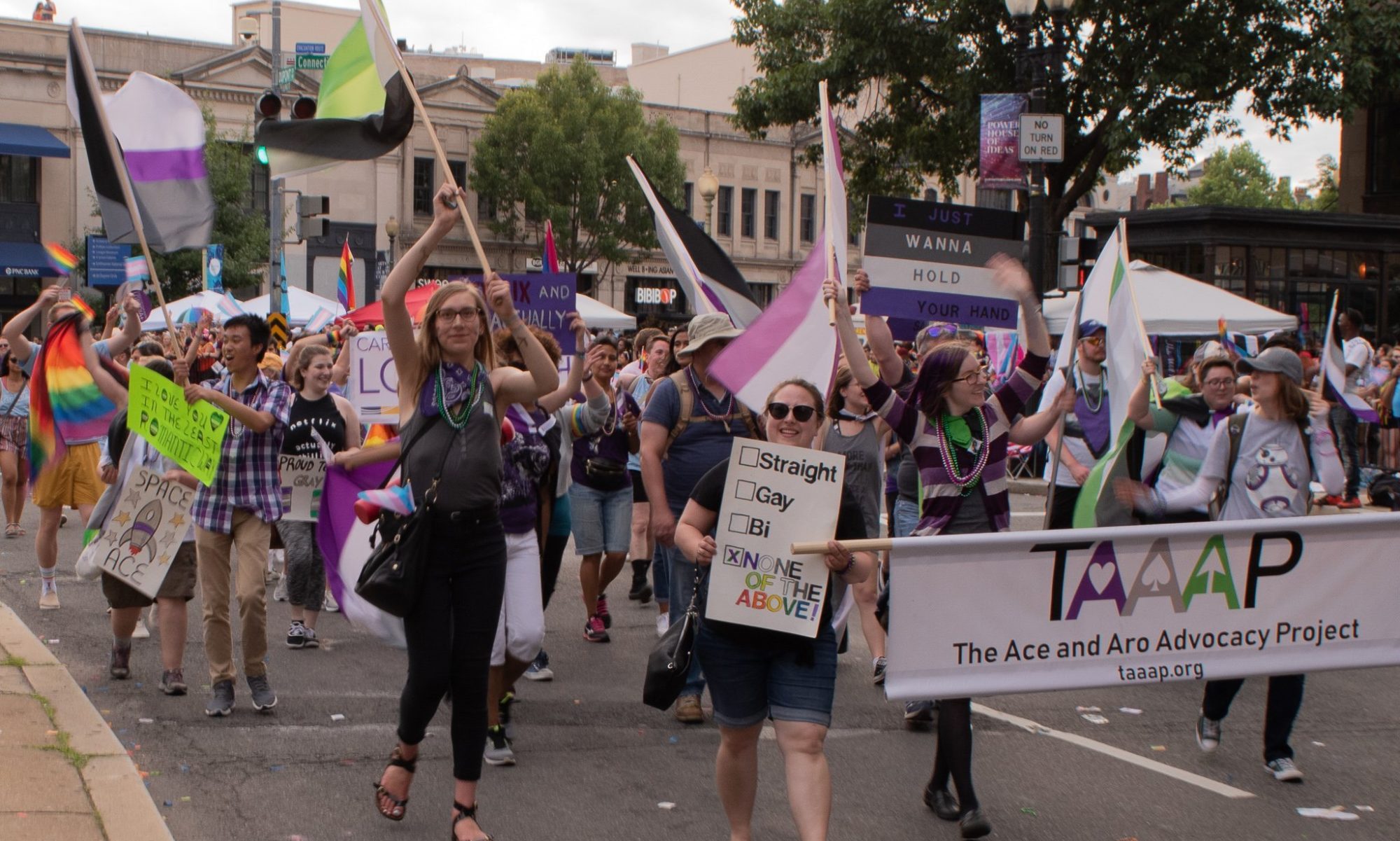The Ace and Aro Advocacy Project presented three posters at the 2022 Sex Positivity Conference. The theme was “Sex Positivity is Humanizing”, and we discussed specific aromantic and asexual perspectives on sex positivity.
One poster was Kink vs. Compulsory Sexuality, developed by Aubri Lancaster, Bob, Grey, and Nathan. The abstract for the poster is:
This poster, from The Ace and Aro Advocacy Project, examines Compulsory Sexuality. Compulsory sexuality is everywhere and impacts everyone – it is the social attitudes, backed up by institutions, that enforce the belief that everyone should and does want a socially acceptable form of sex. It impacts different people in different ways, depending on their identities and cultural context. It particularly effects asexual and aromantic spectrum people, as our very identities are in conflict with the ways that society expects and often demands that we engage in sexuality. While it is impossible to escape the impact of compulsory sexuality altogether, it is possible to engage with your own and others’ sexuality or lack thereof in a thoughtful and intentional way. One solution is kink, as it is founded on the premise of consent and questioning assumptions around intimacy and sexual expression. This poster aims to teach participants both about the concepts of compulsory sexuality and kink, and explore the ways that kink can undermine the elements that make up compulsory sexuality. We took an explicitly asexual and aromantic perspective on kink; the ways that people engage in non-sexual kink and how that can both reinforce an asexual orientation or be sexual in itself, as well as the ways people engage in non-romantic kink dynamics, and how relations free of compulsory romanticism can encourage a wider range of intimacy, sexual or otherwise.
Positive sexuality is incredibly important, but cannot exist if it is enforced by societal expectations through compulsory sexuality, and if it is limited to one particular view of what is considered sexual. This poster will help define the limits of positive sexuality by showing when sexuality stops being positive. It will also discuss some of the different ways of expressing sexuality that are often dehumanized and show how they are humanizing. It will in particular examine the ways that kink can allow people to access their sexuality or lack thereof in a way that is empowering, even as it is frequently condemned by wider society. We are also using our experiences as asexual and aromantic people involved in or interested in kink to inform this presentation, as our identities as well as actions as kinksters are often dehumanized, and showing how kink can help us claim these orientations.
